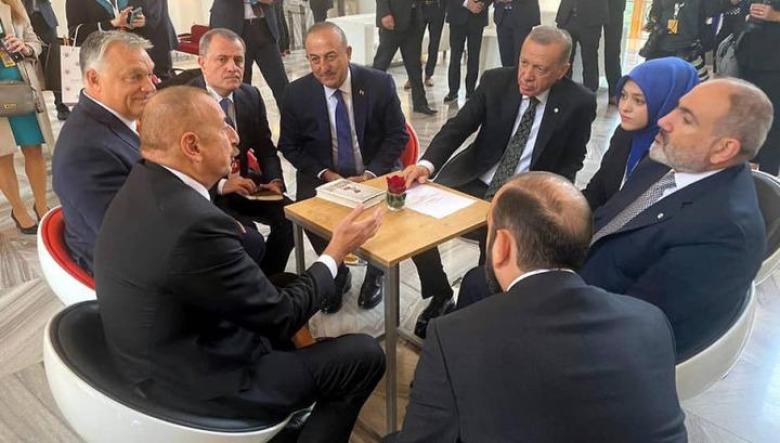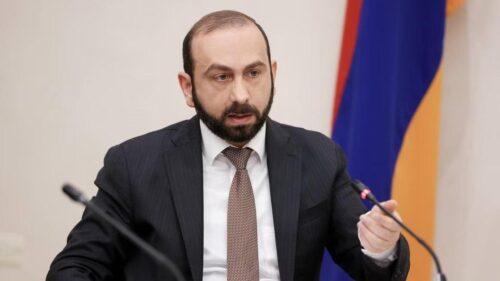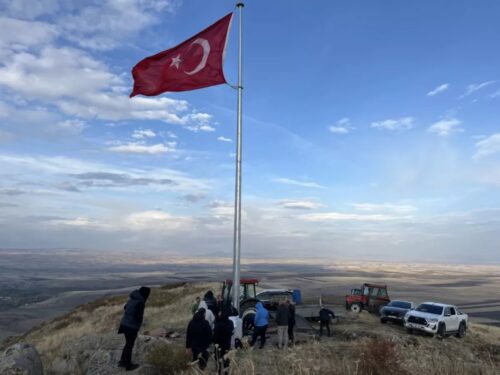
EADaily: Aliyev seeks to sell his signature as expensively as possible to both Pashinyan and external actors
Since the end of the Second Nagorno-Karabakh War, Armenia has been utilizing all available opportunities to engage Turkey in efforts to persuade Azerbaijan to sign a peace agreement as soon as possible, EADaily writes, adding that Ankara understands Yerevan’s hopes but consistently emphasizes that assistance to the Armenian side will not come at the expense of its “younger brother’s” interests.
So far, everything has been limited to Turkey providing a platform for its two neighboring countries to reconcile their positions. According to the article, it is possible that Ankara will try to intensify diplomatic efforts and expand its mediation in the near future.
Armenian authorities have previously stated that the venue of the signing of a historic document is not of principal importance to them; what matters is the timing, which Prime Minister Nikol Pashinyan is trying to bring as close as possible. President Ilham Aliyev, for his part, is unlikely to refuse a corresponding initiative from his Turkish counterpart Recep Tayyip Erdoğan, provided he considers the timing of the agreement’s signing favorable and in line with his two demands: the resolution of the OSCE Minsk Group and Armenia’s final abandonment of “territorial claims.”
In April 2024, Erdoğan expressed confidence that a “new order” is being established in the region and that “it is time to set aside unfounded memories and act better based on the realities of the present time.”
Turkey’s interest in advancing the signing of a historic agreement between Armenia and Azerbaijan is quite extensive in nature, encompassing various issues not only from the current South Caucasus agenda but also beyond. Firstly, Erdoğan is flattered by Pashinyan’s marked respectful treatment of him. Erdoğan, as a politician, is known for placing great importance on symbols and gestures from his foreign partners. A relatively recent similar episode was Armenia’s official recognition of Palestine’s statehood, which received a commendable response from Turkey’s capital.
By changing tactics, Pashinyan has started to play with Erdoğan’s traditional foreign policy ambitions that extend beyond the neighboring countries surrounding Turkey. It is crucial for Ankara to strengthen its role as a key player in the South Caucasus so that a similar status can be anticipated in adjacent regions, including Central Asia. Peace between Armenia and Azerbaijan would bring Turkey closer to this goal through promising transportation and other cross-border projects. The current closed borders (Armenian-Turkish and Armenian-Azerbaijani) have become an obstacle for Ankara.
Turkey’s vision for peace between the two South Caucasus republics does not fully align with Azerbaijan’s approach. This is particularly noticeable regarding the expected timelines for signing the peace agreement. Turkey is delicately and quite reservedly urging Azerbaijan to quickly formalize the historic document, while the “younger brother” is determined to delay this event. Aliyev is entirely satisfied with the “neither war nor peace” situation. He has solved his strategic issue regarding Nagorno-Karabakh, and now he seeks to “sell” his signature as expensively as possible to both Pashinyan and external actors interested in long-term peace in the South Caucasus.


